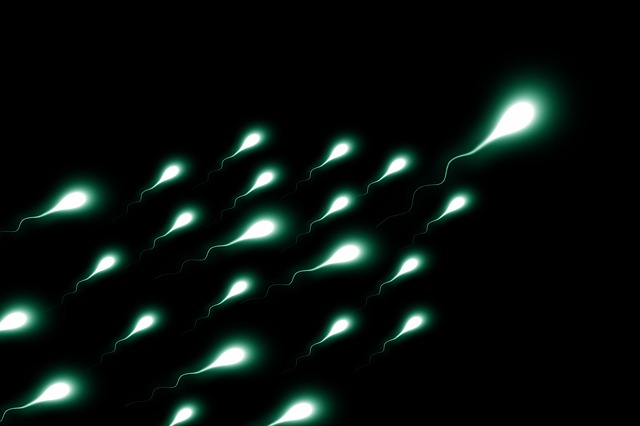Statistical analysis shows that in the present scenario, one in six couples have an infertility problem and the male member is responsible for 50 percent of the cases.
Semen is ejaculated from the male reproductive organ, which contains sperm.
A mature sperm cell or spermatozoa is a key element of male fertility.
But the functionality of spermatozoa is compromised by elevation of reactive oxygen species level.

It is well known that oxygen is essential for life, but due to its strong oxidizing property, it causes free radicals formation within the cellular structures and consequences of this lead to series of structural and functional changes in the organs.
Various external factors, including unhealthy lifestyle and exposure to environmental toxic chemicals, often influence free radicals formation within the cellular structures.
The most common free radicals like superoxide anions, hydroxyl radicals, and hypochlorite radicals are collectively known as reactive oxygen species (ROS).
Research findings supported that increased burden of ROS plays an important role in male infertility.
The most common free radicals like superoxide anions, hydroxyl radicals, and hypochlorite radicals are collectively known as reactive oxygen species (ROS).
Research findings supported that increased burden of ROS plays an important role in male infertility.
In recent days, optimum semen quality is only found in 1 in 4 men.
Certain identified lifestyle factors, which have a negative influence on male fertility are as follows:
- Today almost every male individuals prefer to wear tight outfits and undergarments and do office jobs. In the office, prolong seating on the desk with wearing tight undergarments and outfits increase the temperature in the male genital organs.
- Male workers in glass, metal, and ceramic industry are often exposed to high temperature due to their occupational reasons, which also causes excess heat exposure to the male genital organs.
- Most of the male members prefer to take a shower rather than a bath, which also alter the scrotal temperature.
- Pesticides application in harvesting and agriculture sector increase the tendency to harmful chemicals exposure by ingesting the foods.
- Male members prefer to eat more animal fats containing foods than plant-based foods, which also influence several metabolic disorders.
- The distance of workplace from residential area and traffic queues influence prolong driving, which not only disturbs body temperature but also increases the atmospheric pollutant exposure timing.
- Diet also have maximum influence on fertility issues; like the hormonal treatment of animals to alter the reproduction process, which can further alter the food value of the nutrients, as hormonal residues are present in animal fats and that provides a negative impact on the human fertility process.
- The increasing trend of soy-containing foods also alter fertility, as soybeans contain phytoestrogens and that alter human hormonal homeostasis.
- In recent days, people are inclined to take readily to eat foods or packaged foods due to their fast and sedentary lifestyle. This packaged food is also a source of trans fat and can cause several metabolic disorders and decrease sperm generation ability and poor semen quality.
- Males have a tendency to drug abuse for recreational purposes or sports activities or to develop muscle growth. This unnecessary exposure of the body to foreign materials can increase the tendency of infertility.
- Medical science advancement has given us several chemotherapeutic agents to combat cancer and infections. Cancer chemotherapeutic agents, radiation therapy, and antibiotics can adversely affect sperm production.
Read Also: Zinc Supplement and male fertility
The above-mentioned factors alter scrotal thermoregulation and sex steroidal activities in male, which poorly regulate spermatogenesis and semen quality.
In addition, increased oxidative stress due to adverse environmental and lifestyle factors causes DNA damage and break down of the cell membranes of spermatozoa.
This leads to a large number of abnormal spermatozoa production, impaired sperm motility, and viability.

Ravi Sharma is a self-motivated, successful entrepreneur and has a solid experience in the fertility segment. and he is the director at ARTbaby Global (ARThealthcare). He is a pharmacy graduate with post-graduation in business administration and has 14 years of rich experience in the field of infertility segment. He loves to write about IVF, Surrogacy, and other ART (assisted reproductive technology) news, issues, and updates. He is a Pharmacy graduate (B. Pharm) and M.B.A (marketing).
His most recent success includes the successful launch of the medical tourism company, ARTbaby, which offers treatment options for infertility, egg donation, and surrogacy. He likes spending time with his family and writing about various aspects of IVF surrogacy and donating eggs.
